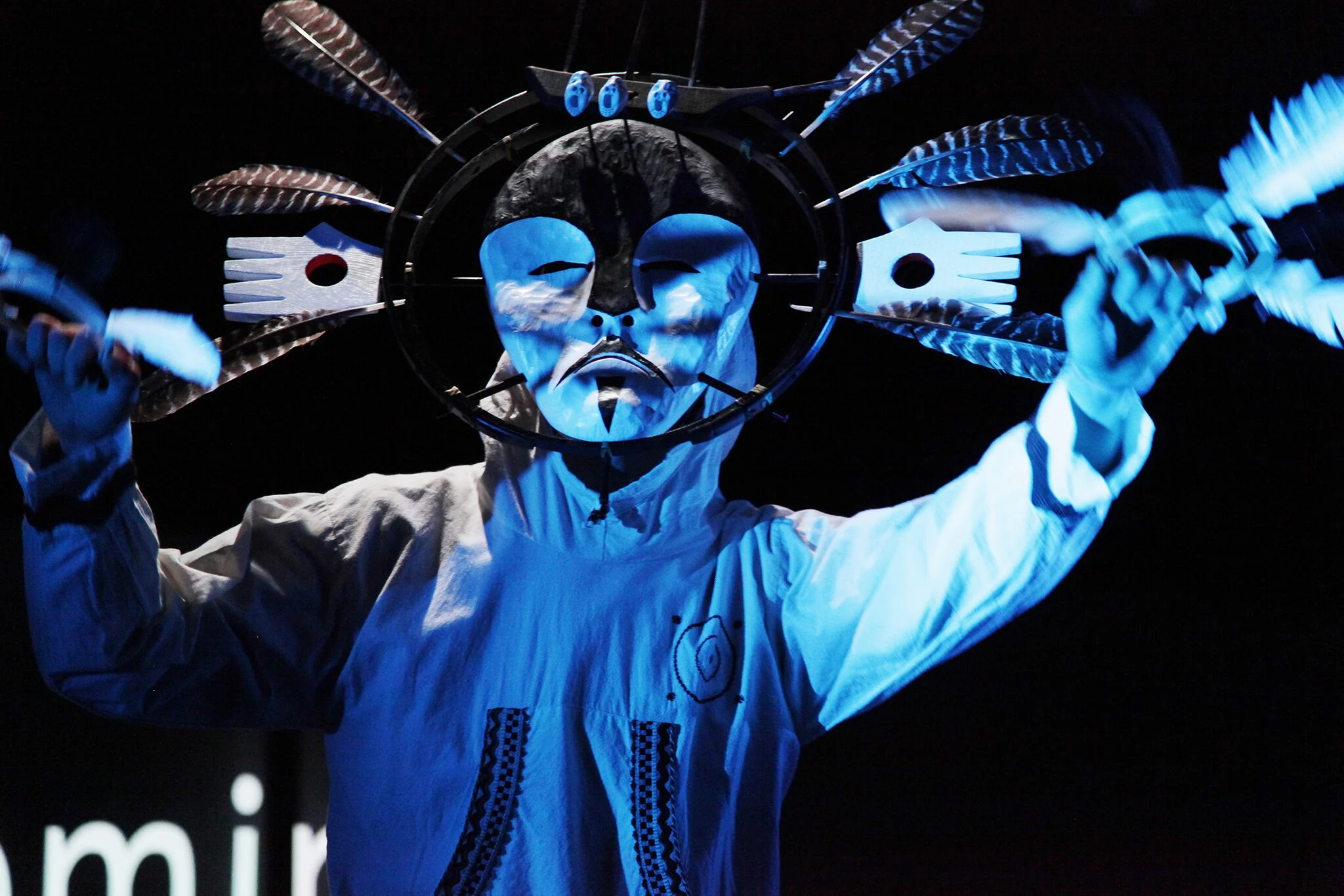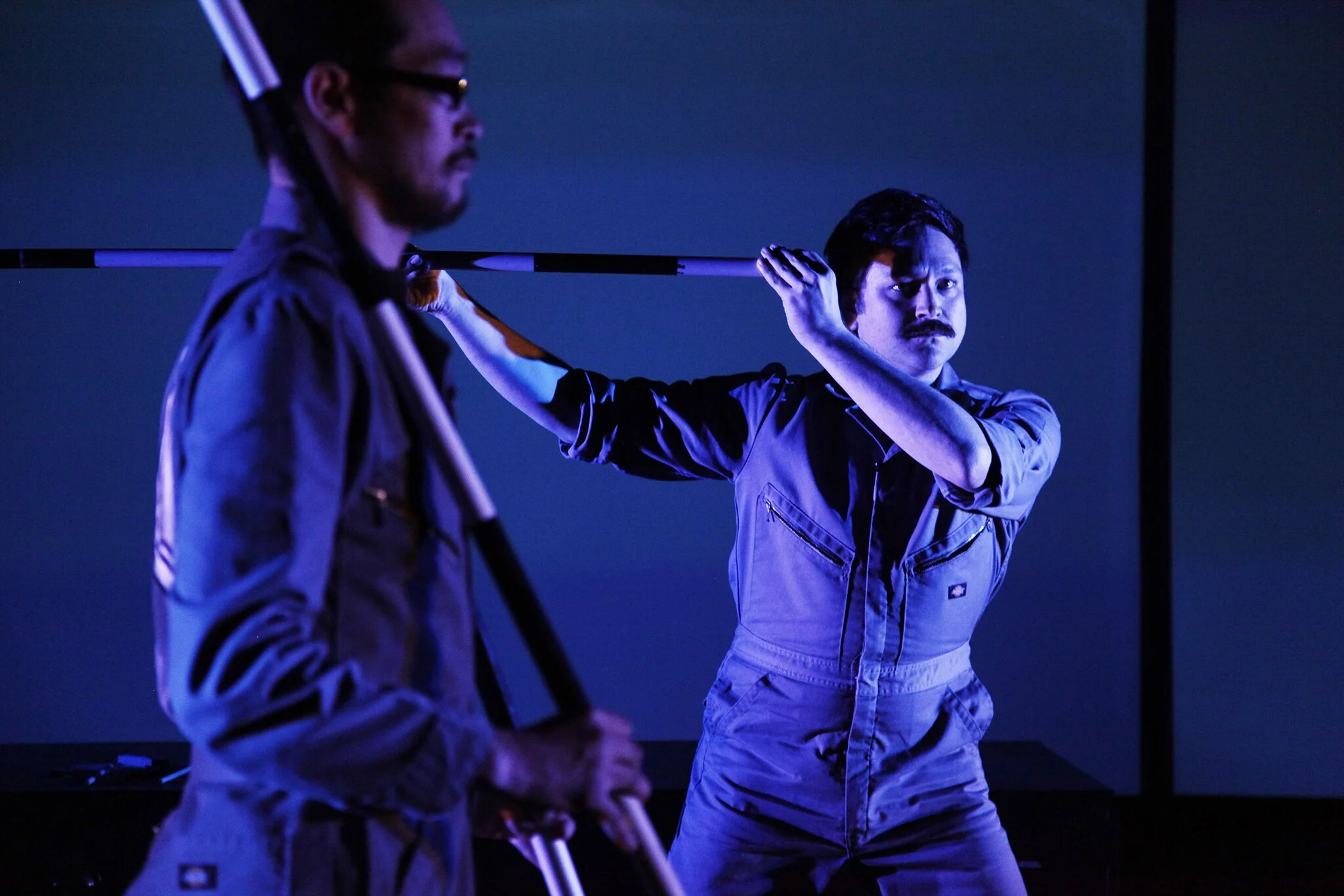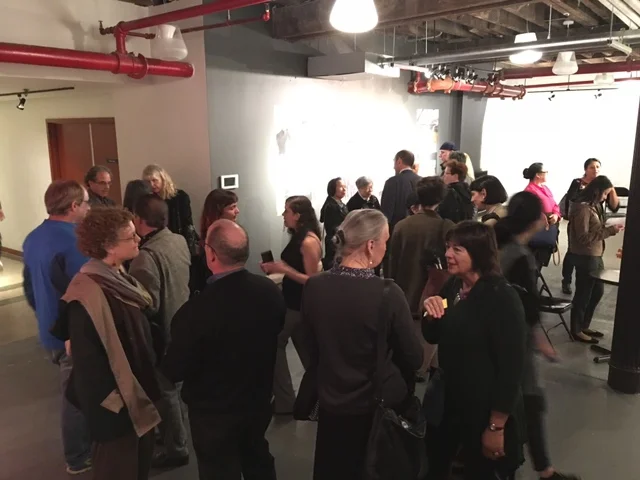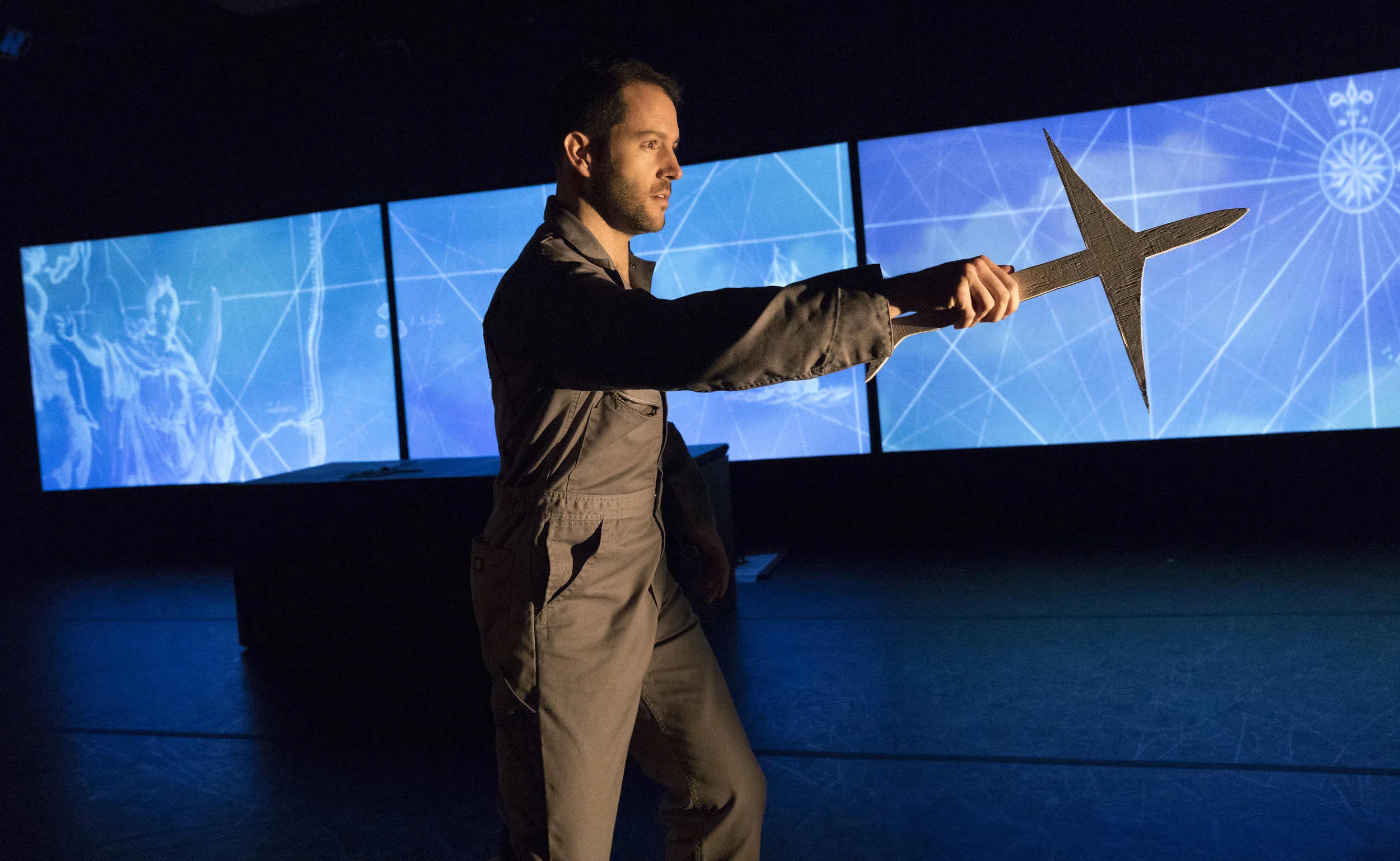CONVERSATIONS: New York
A growing archive of contemporary
stories of cross-cultural encounter.
During the New York run of ALAXSXA | ALASKA at La MaMa, Ping Chong + Company welcomed our audiences into ongoing conversations following each performance.
AKIKO ROTCH | JUNEAU
"I’m Japanese, so I’m not white and I’m not Alaskan Native, so sometimes I feel my position is really convenient in Alaska, ’cause I’m not either side. So they treat me, of course, outside from them both - from the whites and Alaskans, but I’m not [an] enemy or I’m not like someone really against, so I’m kind of just being neutral. So I think that’s my benefit to live in Alaska."
ALEXIS LUCENA | MANHATTAN
"Also you get kind of scared to say stuff or ashamed for stuff you do back home that they don’t do here, which is like kind of awful. But you have to work your way around it because you are trying to conform."
ALICIA HALL MORAN | NEW YORK CITY
"I was thinking about my past. I’m African American, but I ski, and I was a figure skater as a kid, I was on a precision skating team, and always on the ice and the snow... and the pause that it gives people; [I have] a hyper-self consciousness around the ways that my biography, my little points on paper don’t line up with someone’s expectation, even to people just like me... I’ve tread that ground a lot."
RICHARD LAWRENCE | LONG ISLAND CITY
"I moved to England, and despite them speaking theoretically the same language, they really don’t. The nuances made all the difference, and I can only imagine moving into a place like [Alaska]."
TONGTONG ZHU | UPPER EAST SIDE
"But I do have a cousin, whose Chinese name is impossible to pronounce for Americans... so she has to take on an American name just to be easy for other people."
KATHY DIDIER | NEW HAMPSHIRE
"I live in New Hampshire, moved there from New York City, and I was an outsider. And at first people wouldn’t talk to me; it took a long time to get involved with the community. And that’s what I saw here, that maybe eventually the teacher got involved with the local people."
FELIX BROECKER | UPPER EAST SIDE
"I like the [moment in the performance] where [the actors] were sitting facing each other and saying the same thing basically. That's kind of a universal thing when approaching different cultures. You shy away from people. You don't want to contact them. They feel the same way. But at the same time, you want to contact them. It takes a long time to build a friendship, I guess, when you have this barrier between you."
JESSE BARNETT | ASTORIA
"I imagine you could have been somewhere forever, but if you don’t have a good relationship with the community or the community does not accept you, then despite being there forever, you would then be an outsider."
DIANA DAVENPORT | LONG ISLAND CITY
"Both my brothers worked on the Alaskan pipeline. It was sort of a big thing because they both went up at different times. I think one was in the summer and one was probably in the fall or something like that. But it was sort of an exciting experience. I didn’t really think of it in any other way then. Now I’m starting to rethink it. I really only thought about it as new technology... and then [in the performance] when we heard that the Natives have gotten 900 million dollars to [renounce their land claims], and then the oil business brought in 12 billion dollars like ten years later... it's sort of horrifying."
ROGER WOO | LONG BEACH, NY
"When he said in the play that the [Alaskan Natives] said that their culture does still exist, it's only probably because it's so isolated from the rest of America. To me that was very special."
TELIJAH PATTERSON | QUEENS
"It was a little bit emotional for me too, because my people have been through the same thing. That same sort of patronization. Like when the guy went to the village, and he wasn't saying the words right."
DIANA SADOVA | QUEENS
"I'm Russian, and [according to that history], Americans actually took Alaska from Russia. So Russians are angry about losing Alaska, because it was their territory. But it's not American, and it's not Russian. It's crazy the way that countries fight for territories that aren't even theirs. And it's heartbreaking, because [Native] people actually live there!"
JOYCE GERBER PAGE | UPPER WEST SIDE
"Everything is very expensive [in Alaska]. Even the fish! ... And we're sitting in the car, and I said to her, 'Why would the fish be so expensive here when this is where it comes from?' You won't believe this. She said, 'The Jews in New York... buy it and make lox out of it!'"
GISELLE MENDOZA | QUEENS
"It made me think of the historical trauma. Like seeing the uncles drinking so that effects them, and later then they start to drink as well. The cycle of it. And then spending all that money on alcohol when you're already in so much trouble."
STEFANIE SERTICH | QUEENS
"So the island [of Key West] is like-- the people who come on these cruise ships, they come to a certain point, they hit all these bars, and then they get so drunk they have to go back to their ship. They just ruin a part of Key West, and then they leave. And the locals are there to pick it up."
K. RANCHOD | JOHANNESBURG
"I think all communities all over the world currently have to assimilate. And I grew up in apartheid South Africa, so it was even more, in terms of assimilating. [There has been] a lot of change. Positive change. But during that period when I grew up, black people weren't allowed on TV. They weren't allowed in adverts. They weren't allowed in our books, right? Or Indian people or anybody else, and so you only got a white image, in terms of what happens. And this assimilation [they're] forced to undergo is similar, even though it's not apartheid South Africa."














